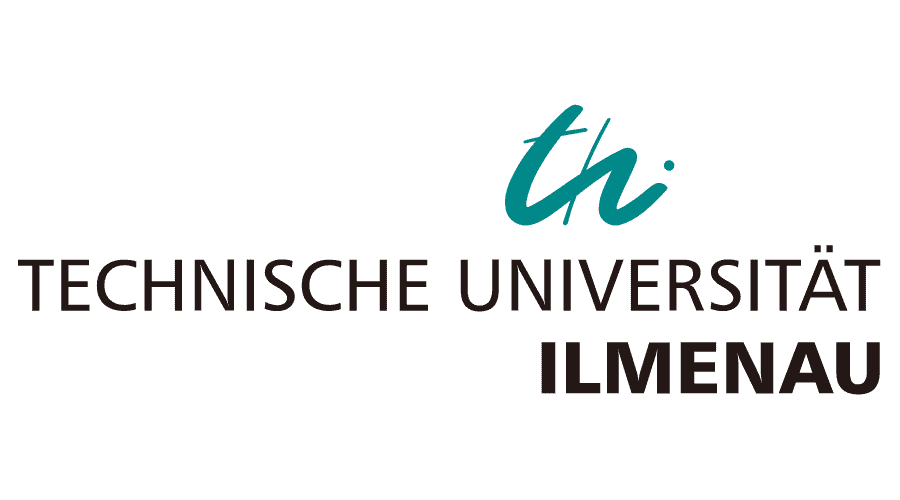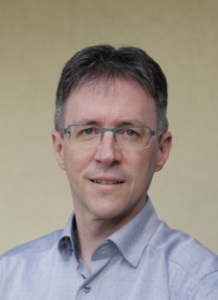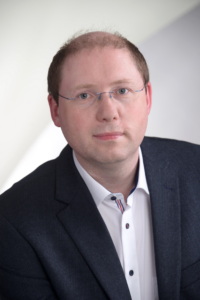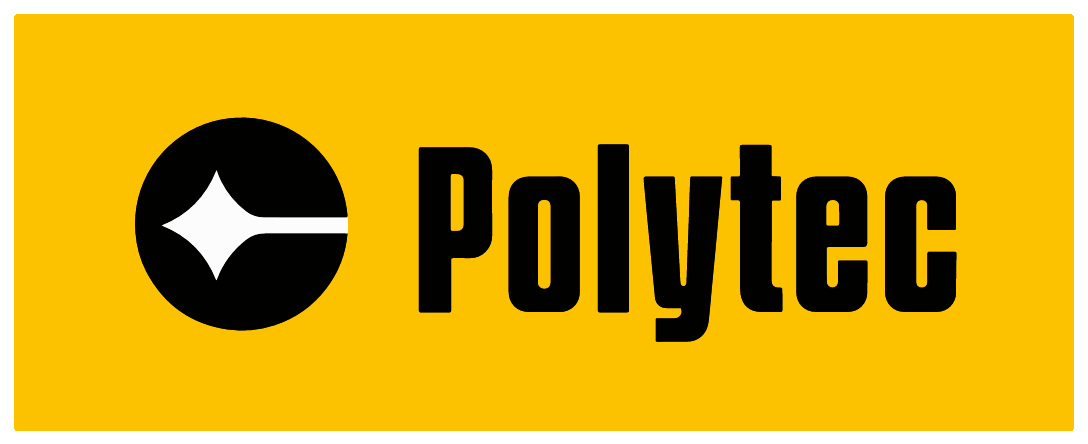Project Description
Special Interest Group Meeting: Micro/Nano Manufacturing
28th – 29th November 2023
Micro/Nano Manufacturing
28th – 29th November 2023, Technische Universität Ilmenau, Germany
Micro- and nano-scale manufacturing has been the subject of research and industrial focus over the past 25 years. Lithography-based technology forms the basis of micro-electro-mechanical systems (MEMS) manufacturing, but precision manufacturing technologies have also been developed to cover micro-scale dimensions and accuracies.
These fundamentally different technologies are combined in order to exploit their strengths. One example is the use of lithography-based technologies to establish nanostructures that are subsequently transferred to 3D geometries via injection moulding. Another could be micro-scale additive manufacturing combined with precision subtractive finishing.
Manufacturing processes at the micro-scale are the key enabling technologies to bridge the gap between the nano- and the macro-worlds to increase the accuracy of micro/nano-precision production technologies, and to integrate different dimensional scales in to mass-manufacturing processes. Accordingly, the Special Interest Group Workshop on Micro/Nano Manufacturing will focus on novel methodological developments in micro- and nano-scale manufacturing, i.e., on novel process chains including process optimisation, quality assurance approaches and metrology.
The workshop will host keynotes and several presentations and posters covering the latest developments and research on this increasingly important topic. The workshop will also host a training seminar covering aspects of micro/nano manufacturing in practice.
Themes :
| · Micro & Nano Manufacturing Technologies & Applications | · Machining Technologies for Moulds & Microparts | · Metrology & Quality Control for Microparts |
| · Micro Replication & Additive Techniques | · Assembly & Handling |
The local hosts and organising committee supporting euspen for this Special Interest Group meeting on Micro/Nano Manufacturing are: Prof. Dr Thomas Arnold from Leibniz Institute of Surface Engineering (IOM), DE; Dr Denis Dontsov from SIOS Meßtechnik GmbH, DE; Dr Oltmann Riemer from LFM (Bremen), DE; Katja Richter from Technische Universität Ilmenau, DE; Prof. Dr Stefan Sinzinger from Technische Universität Ilmenau, DE and Associate Prof. Guido Tosello from Technical University of Denmark.
The Micro/Nano Manufacturing meeting chair is Dr Oltmann Riemer from LFM (Bremen), DE.
This event is supported by our local hosts:


Key Dates
7th August 2023 : Delegate Registration Opens
1st September 2023 : Online abstract submission deadline
18th September 2023 : Notification of presentation acceptance (oral/poster)
Registration Fees
- €195+VAT – euspen Student Member
- €450+VAT – euspen Member
- €550+VAT – Non-euspen member
- €650+VAT – Exhibitor
- €55+VAT – Tutorial (Half day)
- €45+VAT – Student Networking Dinner
*Student members fee is not inclusive of the networking dinner.
All speakers and presenters must register for the conference using the appropriate delegate fee.
Registration
The euspen SIG meeting on Micro/Nano Manufacturing complies with international VAT/IVA/VAT MOSS rules and as such the relevant Standard VAT of German VAT 19% will be applied to all delegate registration invoices. Please select the appropriate payment option below.
Select Credit Card if you would like to pay by credit card :-
Select Invoice if you would like to pay by invoice :-
- A valid Purchase Order (PO) number is required to guarantee payment.
- An administration fee of €30 will be applied.
- All invoices must be settled prior to attendance of the event. If the invoice remains outstanding at the point of attendance, the delegate will be required to pay the invoice via credit card before admittance.
- Your completed form should be sent to info@euspen.eu and an invoice will be sent to you manually.
Exhibitor Information
If you would like to exhibit at this meeting, your registration fee would include:
- 1 x table (actual size to be confirmed)
- 2 x chairs
- Space for 2 roll-up banners
- 5 minute industry presentation within the programme. We would request this is not a sales pitch but more related to organisational information and real-life applications of products etc.
- 1 x delegate registration (includes the networking dinner and access to presentations)
Exhibitors
For more than 50 years and with almost 500 employees worldwide, the high-tech company Polytec has been developing, producing and selling optical measurement technology for research and industry. This includes systems for vibration measurement, surface characterization, length and speed measurement, process analytics and optical systems.
Optical 3D surface measurement systems from Polytec operate in a non-contact and area-based manner in both the micro and macro range. Polytec is also part of the “Fair Data Sheet” initiative and involved in ISO activities for surface metrology.
Visit our website for additional information, www.polytec.com.
SmalTec International is a leading micro machine manufacturer, specializing in micro-EDM (electro discharge machining). Based in the Chicago Area, SmalTec manufactures high and ultra-high precision equipment used in a variety of industries; i.e., medical, aerospace, communications, automotive, university research and others. We offer a prototyping service for our customers. During this phase we work with customers to complete proof or process and many times products. We are engaged from the R&D phase to light production. Providing a turn key solution, many of our Prototype customers purchase the equipment and begin production in their own facilities.
Technology capabilities …
- Very tight motion tolerances (100 nanometers on the EM203 or 1 nanometer on the GM703)
- 3d coordinated motion of up to 4-axis simultaneously (developing a 5th axis at this time)
- Small holes to 3um diameter (with repeatable results)
- Inside corner radius of 2.5 um (if necessary)
- Spark sizes down to 0.25 um for machining
- Achieving a 40nm Rmax with EDM
- 5nm Ra with PCD
- On machine tool making/shaping capability
- Small hole / high aspect ration capability (10:1 at 5um | 20:1 at 40 um | 35:1 at 50 um | 40+:1 at 100 um
- Versatile equipment capable of utilizing a variety of standard tooling; i.e. drilling milling, polishing, grinding.
- High Speed Spindle Machining (180,000 RPM)
- On machine automated part detection, location and verification
- In situ micro metrology utilizing our patented Micro Probe System
Visit our website for additional information, www.smaltec.com. We look forward to discussing your micro feature challenges.
Submit a short abstract for Micro/Nano Manufacturing 2023
We are delighted to bring together leading expertise globally to an open forum for
focused presentations and discussions on Micro/Nano Manufacturing
Announcement & Call for Abstracts
Come and join your international peers and maintain a leading edge on technology, customers, partners and suppliers. Access the greatest minds in micro and nano research and development. Share knowledge and information and stimulate debates.
Themes
- Micro & Nano Manufacturing Technologies & Applications
- Micro Replication & Additive Techniques
- Machining Technologies for Moulds & Microparts
- Assembly & Handling
- Metrology & Quality Control for Microparts
Submission of abstracts
Abstracts are expected to describe original work, previously unpublished and should indicate new and significant advances and their importance. Initially short abstracts comprising of approx. 300 words in length should be submitted online using the below links.
Following review a review of submitted abstracts, authors will be notified of acceptance of presentation mode (poster/oral) no later than 18th September 2023.
The invitation to submit an abstract does not constitute an offer to pay travel, accommodation or registration costs associated with the conference. Similarly, no speaker fee is paid to successful participants. All speakers must register for the conference and transfer registration fee. In specific cases the organising committee reserves the right to deviate from the standard procedure.
Submission deadline: 1st September 2023
Keynotes
Prof. Dr. Steffen Strehle
Technische Universität Ilmenau, DE
New perspectives in 3D micro-nanostructuring through the use of focused electron beams
Biography
Steffen Strehle holds a doctorate in engineering from Dresden University of Technology (Germany) with a specialisation in microtechnology and materials science. He worked as researcher at the Institute of Solid State and Materials Research Dresden (Germany), at the Institute for Semiconductor and Microsystems Technology (TU Dresden) and at Harvard University (USA). From 2011, he held the Chair of Semiconductor Systems at the Ulm University and took over in 2019 the Chair of Microsystems Technology at the TU Ilmenau, where his research focuses on microsystems and micro- and nanostructuring of complex materials.

Christof Pruss
University of Stuttgart, DE
Trends and challenges in Microoptics
Microoptics have formed a key component for the optical designs of sensors, illumination systems and displays for decades. Their development has always been closely related to new fabrication technologies. A current example is the emerging Two-Photon-Lithography, a real 3D-fabrication method that developed over the last years to supplement the classic surface-based 2,5 dimensional fabrication schemes. This contribution gives an insight into current developments of microoptics and the major challenges these impose to the associated metrology.
Biography
Christof Pruss is heading the field of interferometry and diffractive optics at ITO (Institute of Applied Optics) at the University of Stuttgart. The center of his research activities is precision metrology for optical surfaces with a focus on aspheres and freeform surfaces. Recent activities include new flexible interferometer concepts such as Tilted Wave Interferometery and Nanometrology in large volumes.
State-of-the-Art

Dr Timo Eppig
AMIPLANT GmbH, DE
Challenges in modern intraocular lens manufacturing – from mass production to made-to-order
Timo Eppig1,2, Alexander Baum1, Jonas Meßner1
1AMIPLANT GmbH, Haidling 1, 91220 Schnaittach, Germany
2Institute of Experimental Ophthalmology, Saarland University, Kirrberger Str. 100, 66424 Homburg
In the ageing human eye the crystalline lens changes its biological structure leading to increasing opacity (cataract). This causes a reduction of contrast perception and can finally lead to blindness. The only available treatment of this condition is the replacement of the natural lens with an artificial intraocular lens (IOL). Modern IOLs, however, are more than just a preventative of blindness. They also allow for a correction of refractive errors and can provide practical near vision, which would otherwise require a bifocal or progressive spectacle lens. Such lenses typically have spherocylindrical, aspherical, segmented, or diffractive optical surfaces.
Intraocular lens manufacturing faces various challenges from material selection, optical surface generation, optical metrology, and regulatory issues.
Molding in general is an ideal method for mass production but is also restricted to availability of suitable materials and limits the design variability. In contrast, diamond cutting is extremely flexible at the cost of production time. Other technologies like laser cutting have not yet been introduced into industrial production of IOLs.
IOLs are available in two different material categories: hydrophilic and hydrophobic materials. In general, the expense of production and the suitable manufacturing strategy is different for hydrophilic and hydrophobic materials.
We will discuss how different manufacturing strategies such as mass production or made-to-order production meet these challenges.
Dr Martin Ehrhardt
Leibniz Institute of Surface Engineering (IOM), DE
Beam-based ultra-precise surface processing
Beam-based ultra-precise surface processing is a rapidly developing field that uses beams of electrons, ions or photons to create ultra-precise modified solid surfaces. These techniques have a wide range of applications in fields such as electronics, photonics and biomedicine.
The interaction of the surface with these beams allows ultra-precise shaping, micro- and nanostructuring and smoothing to sub-nanometer specifications.
Selected beam-based technologies using ion beams, plasma jets and ultra-short laser pulses will be presented, and the limitations and opportunities of the technology will be discussed using selected examples.
For example, the use of ultrashort laser pulses allows the fabrication of self-organised micro- and nanostructures with lateral sizes significantly smaller than the optical resolution limit, such as LIPSS (laser-induced periodic surface structures), or compact nanostructures with surface properties of interest, such as ultra-hydrophobicity or secondary electron reduction, with derivable fields of application.



